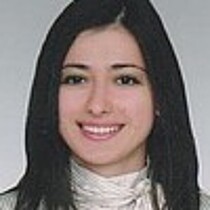

Article: Monday, 15 January 2018
In knowledge-intensive industries, greater access to information can help employees perform their tasks better. But research by Burcu Subaşi of Rotterdam School of Management, Erasmus University (RSM) now shows that people are less likely to share valuable information with low-status nationality minorities. Once teams feel observed by others, this disadvantage disappears, she also found.
In the workplace people tend to categorise colleagues based on nationality, and attribute a particular status to it, Subaşi says. Earlier research showed that being part of a country’s majority nationality typically leads to a higher status, and to being seen as more competent by others. And, because people are more likely to share information with those of higher status, people with the dominant nationality tend to receive more information.
Until now, most research has assumed that having a minority nationality was enough to put employees at a disadvantage. But Subaşi suspected that not all minorities are stereotyped and categorised equally. She predicted that when the cultural differences between a majority and a minority nationality are small, the status of the minority group would not necessarily have to be much lower.
To find out, she invited 180 participants to solve a set of problems in teams of three. In every group, two of the three were Dutch and represented the country’s dominant nationality. Every third member was either German, a nationality with a small cultural distance from the Dutch, or Chinese who share fewer cultural similarities with the Dutch.
Every team member was then asked to complete a different task involving the opening of a fictional theatre. To complete the tasks successfully, each participant needed vital information that was given only to the two other members of the team. By recording the conversations in the team, the researcher could observe who was willing to share pieces of information with his or her team members.
Analysis showed that the Germans in the experiment were able to gather as much information as the Dutch, despite having a minority nationality. Strikingly, the Chinese participants were given less information by their team members, which more often left them unable to find the right solutions and complete the task.
Interestingly the results also showed that these differences between the nationalities disappeared in teams whose processes were monitored by an observer. Subaşi explains this by pointing out that an observer, which in practice could be a colleague or a manager, makes people feel more accountable for their actions. The social pressure of being watched forces them to look beyond the stereotypes and start looking for individual merits in their team members, she says.
These results demonstrate that not every minority group in the workplace can be assessed similarly, says Subaşi. The simple fact that one minority group performs well does not say anything meaningful about other groups. This way, the disadvantages these employees face by having a lower-status nationality, are overlooked.
In order to prevent performance deficits of low-status minorities in the work place in knowledge-intensive industries, companies could first of all encourage knowledge transfer between colleagues, increase the diversity of work teams, emphasise task-relevant abilities of employees or introduce open-plan offices. Open-plan offices where employees can easily be observed by managers or other colleagues can help all employees access information regardless of their nationality, and thus perform better, Subaşi found.
Increasing the diversity of work teams is another strategy to make knowledge-sharing more inclusive, she discovered in another study. Because team members perceive their work group more as a team, rather than subgroups of nationalities, increasing team diversity allows everyone, regardless of their nationality, more access to information, she found.
Finally, she discovered that when dissimilar individuals in a group have a high specific status, such as being an expert on a topic, this can serve as a buffer against the negative effects of dissimilarity. In this case, their task-relevant abilities are then considered more important than their demographic characteristics.
Hanze University of Applied Sciences Groningen

Subaşi, B. (2017, December 21). Demographic Dissimilarity, Information Access and Individual Performance (No. EPS-2017-422- ORG). ERIM Ph.D. Series Research in Management. Erasmus University Rotterdam. Retrieved from hdl.handle.net/1765/103495

RSM offers Executive Education and Master programmes in various business areas for any stage of your career. For instance:

Science Communication and Media Officer
Rotterdam School of Management, Erasmus University (RSM) is one of Europe’s top-ranked business schools. RSM provides ground-breaking research and education furthering excellence in all aspects of management and is based in the international port city of Rotterdam – a vital nexus of business, logistics and trade. RSM’s primary focus is on developing business leaders with international careers who can become a force for positive change by carrying their innovative mindset into a sustainable future. Our first-class range of bachelor, master, MBA, PhD and executive programmes encourage them to become to become critical, creative, caring and collaborative thinkers and doers. www.rsm.nl
For more information about RSM or this article, please contact Danielle Baan, Media Officer for RSM, via +31 10 408 2028 or baan@rsm.nl.
